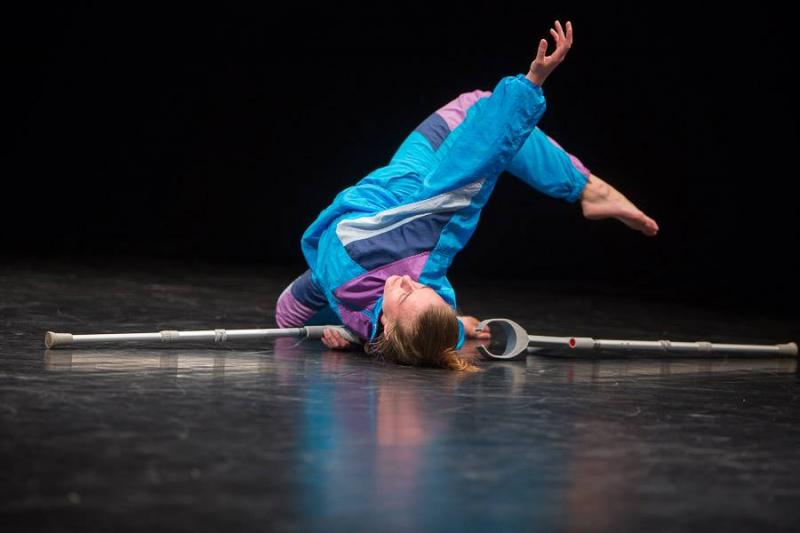
Zuzanna Kasprzyk. Photo: P. Wyszomirski.
This year’s Solo Dance Contest, which accompanied the Gdańsk Dance Festival, concluded on Sunday, 2 June. The jury included: Ismael Ivo (Brazil| Germany) – dancer, choreographer, teacher, long-time artistic director of the Dance Section of the Venice Biennale; Leszek Bzdyl (Poland)– choreographer and dancer; Martin Sonderkamp (Germany) – dancer, choreographer and Joanna Szymajda, deputy director of the Institute of Music and Dance in Warsaw. Five out of the 17 solo pieces presented were awarded with prizes by the jury; one received an audience award. Here are the results:
First Prize ex aequo (1500 euro per person):
Zuzanna Kasprzyk
Michael Shapira
Bartosz Woszczyński
Second Prize (1000 euro):
Dario Tortorelli
Third Prize (500 euro):
Oleg Stepanov
Audience Award:
Milan Ujvari
About the finalists and their pieces:
Zuzanna Kasprzyk, student at the Ludwik Solski Academy for the Dramatic Arts – Department of Dance Theatre in Bydgoszcz, Poland, and graduate of the Gliwice ballet school, was the only woman in the finals. She presentedThere is no place for Susana, drawing inspiration from an absurd reply she received in response to her grant application. The movement was based on martial arts, performed partly with skill, precision and perfect technique, and partly in a style mocking hand-to-hand fighting computer games.
Next up to qualify wasOleg Stepanovof Russia, dancer with the Provincial Dance Theatre of Tatiana Baganova. He danced his performance Nobody with a great focus on technique, extreme endurance and lightness. The conception was also interesting: a one-eyed creature sporting a suit on bare skin.
In the finals we also saw Milan Ujvariof Hungary, graduate of the Hungarian Dance Academy in Budapest. His solo From the Waltz to the Mambo is an extremely witty and indulging lesson of contemporary dance theory. Milan would read out a text simultaneously performing countless acrobatics, pirouettes, summersaults and splits, topping it all off with his outstanding charm and sense of humour.
The perfect Worldby Bartek Woszczyński, student of the Rambert School of Ballet and Contemporary Dance, was an unobvious tale of unhappy life with an alcoholic father.
Michael Shapira, who studied design in Stockholm and improvisation in Berlin, presented Glorious George the Jewish Gargoyle, built on the play of meanings and the play of sounds of the four words forming the title. They inspired a journey featuring music, recorded conversations on difficult issues, and improvisation.
The last dancer to qualify to the finals was Dario Tortorelli with his Romeo Heart. During his performance the stage was taken over by music, light, darkness and time. At times, Tortorelli’s movements were reminiscent of slow motion, on other occasions were full of essence, “drawling”, and sometimes almost unnoticeable, like in butoh.